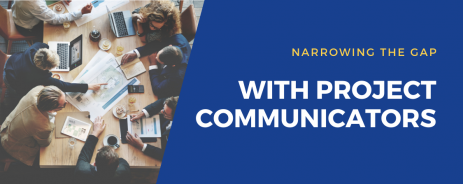
Accessible Web Design Helps with SEO. Here’s How.
Your business has a legal and ethical responsibility to take web accessibility seriously. Lawsuits filed under the Americans with Disabilities Act (ADA) continue to rise each year, and the Department of Defense has compared web accessibility issues to missing wheelchair ramps and other physical barriers that impact people with disabilities.
But setting legal arguments aside, there’s another reason that your business should care about accessibility: search engine optimization (SEO).
An estimated 68% of online experiences begin with a search engine, and 53.3% of all website traffic comes from organic search. When your website follows the best practices of accessibility, search engines notice — and you’re more likely to rank for high-value keywords. Here’s why.
SEO and Web Accessibility: A Perfect Match
The goal of digital accessibility is to create content that provides a great experience for every user, regardless of their abilities or the tools they use to access the web. That includes people who use screen readers (software that converts text to audio), screen magnifiers, and other assistive technologies.
When your website works well with those types of technologies, it’s machine readable. Every element is semantically defined, and the site has a clear structure and clean code.
And when a website has a clear structure and clean code, it works better for your entire audience — including search engine crawlers. For example:
- Adding accurate alt text to images makes those images understandable for nonvisual users. Alt text is also vital for image SEO: If search engines don’t have a text alternative, they can’t categorize your visual content.
- Using subheadings can help people with disabilities navigate your content to find the information they want. When you naturally incorporate keywords into your subheadings, search engines can better understand the purpose of your content.
- Adding transcripts for videos can improve the user experience for people with visual impairments. They’re also a great way to add fresh text content to your website.
- Many people with disabilities reference page title tags to navigate between open tabs or browser windows. Title tags are also one of the most important SEO signals, and generic titles rarely rank for high-value keywords.
 Other accessibility best practices don’t directly influence SEO, but they can have a positive effect over time. For example, when your website has appropriate color contrast, text is readable for people with color vision deficiencies (also known as “colorblindness”).
Other accessibility best practices don’t directly influence SEO, but they can have a positive effect over time. For example, when your website has appropriate color contrast, text is readable for people with color vision deficiencies (also known as “colorblindness”).
Search engines don’t really care about color contrast — after all, they’re able to read low-contrast text without any issues — but appropriate color contrast can keep users on the page. That leads to lower bounce rates, which can certainly impact search engine ranking positions (SERPs).
Web Accessibility Has Rules, and Following The Rules Pays Off
The World Wide Web Consortium (W3C) publishes the Web Content Accessibility Guidelines (WCAG), which is widely considered to be the international standard for digital accessibility.
Testing your website against WCAG can improve compliance with the ADA, Section 508 of the Rehabilitation Act, and a host of other disability non-discrimination laws. More importantly, you’ll be taking the first steps towards a better experience for your users — including the estimated 25% of U.S. adults who live with disabilities.
An accessible website can help your business grow by enhancing SEO and driving user engagement. It’s not just an ethical obligation: It’s smart business.
St. Louis Web Accessibility Testing and Remediation
At Blue Stingray, we’re committed to helping our clients build accessible websites, web apps, and mobile apps. Through our St. Louis office, we provide website testing and remediation services that follow the best practices of WCAG — and the best practices of SEO.
To learn more, schedule a demo or call 314.266.8097.



